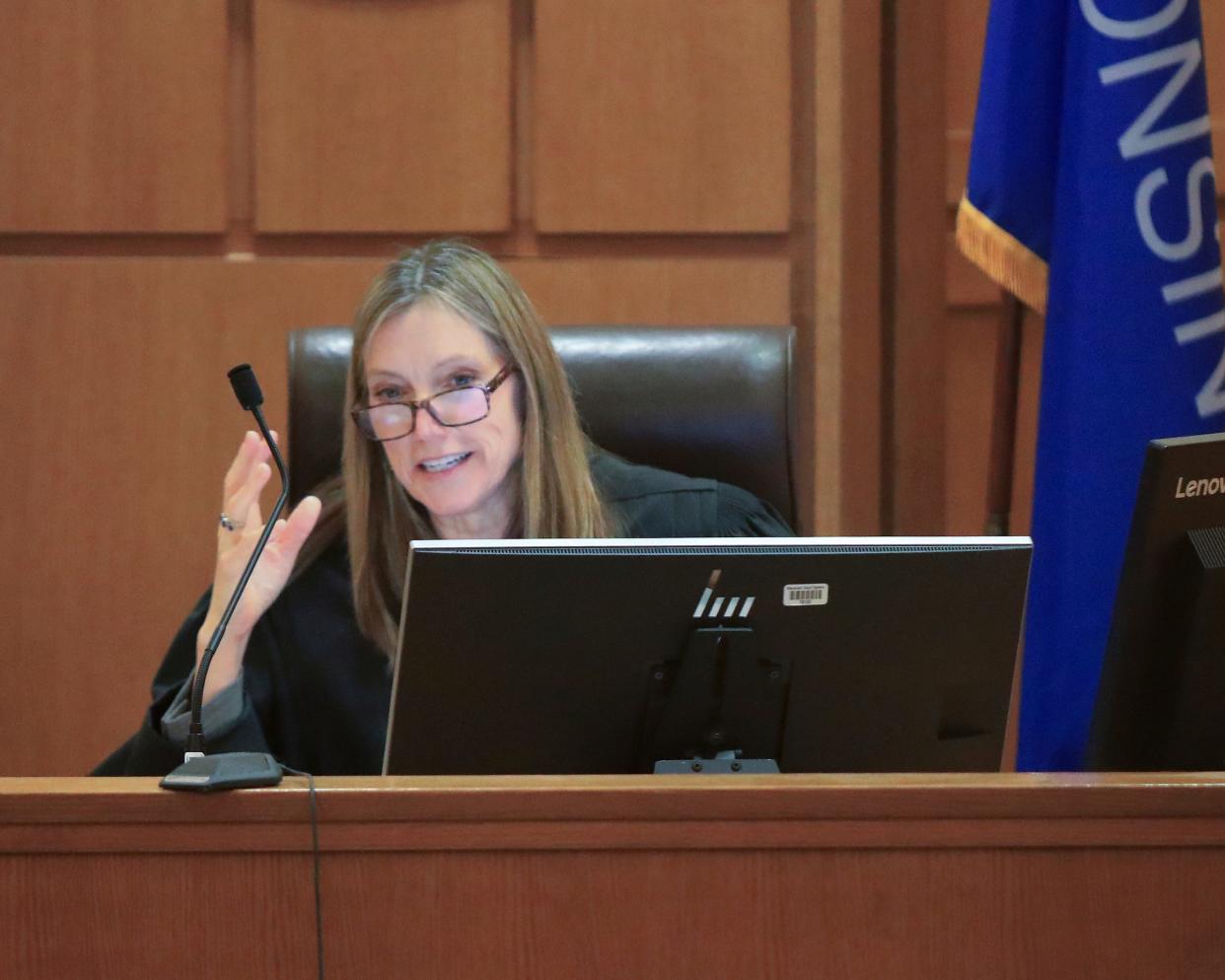Judge rules Wisconsin's 1849 law does not ban abortions, setting stage for Supreme Court case

MADISON — A Dane County judge on Tuesday ruled that a 174-year-old law thought to prohibit abortion in Wisconsin does not, in fact, do so.
"The Court declares Wis. Stat. § 940.04 does not prohibit abortions," wrote Dane County Circuit Judge Diane Schlipper.
Schlipper ruled that the law in question, a statute written in 1849, does not apply to abortions but to feticide.
A consensual abortion is sought out by a pregnant woman who voluntarily determines to end a pregnancy. Schlipper's ruling is based on a 1994 state Supreme Court decision that determined feticide is a nonconsensual act in which somebody batters a woman to the point she loses the pregnancy.
With the 1849 statute no longer in effect, Wisconsin returns to its pre-Dobbs abortion laws, under which abortion is banned 20 weeks after "probable fertilization."
Planned Parenthood of Wisconsin chief strategy officer Michelle Velasquez called the ruling "another important step forward in restoring and expanding access to abortion in Wisconsin."
"This is the judgment we were hoping for, the judgment we knew was right, and hopefully the thing that will restore access to full-scope reproductive care for women across the state," said Dr. Kristin Lyerly, a Green Bay OB-GYN and former Democratic state Assembly candidate who intervened in the case and was cited prominently in Schlipper's ruling.
Attorney General Josh Kaul and Gov. Tony Evers, both Democrats, filed the lawsuit shortly after the U.S. Supreme Court in June 2022 overturned its 1973 Roe v. Wade decision, which legalized abortion nationwide. The court's 2022 ruling in Dobbs v. Jackson Women's Health Care effectively put back into place the state's original abortion law.
Passed more than a century before the Roe ruling, the 1849 law bans doctors from performing abortions in every case except when the mother will die without the procedure. Doctors face up to six years in prison on felony charges and $10,000 in fines if they violate the law.
Kaul argued in the lawsuit that the 1849 law has been invalidated by abortion laws passed since the Roe v. Wade decision. Anti-abortion proponents and attorneys for Republican lawmakers disagreed, arguing the original law was still in effect.
In July, Schlipper denied a motion to dismiss the lawsuit from defendant Sheboygan District Attorney Joel Urmanski, who had argued that Kaul was asking a judge to perform the duties of lawmakers and was ignoring the fact that lawmakers have put forward language to repeal the original abortion law and decided against passing it.
Following Schlipper's July order, Planned Parenthood of Wisconsin, the state's largest abortion provider, resumed services.
"Freedom wins. Equality wins. Women’s health wins," Kaul said in a statement. "This ruling is a momentous victory, and we are prepared to defend it — and reproductive freedom in Wisconsin."
Wisconsin Right to Life legislative director Gracie Skogman said the ruling is "truly disappointing for all Wisconsinites," and Pro-Life Wisconsin legislative director Matt Sande called it "an extraordinary leap in logic." Sande said his group is hopeful the ruling "will be appealed promptly."
"A law that was enforced before the flawed decision of Roe is now one that pro-choice activists on the court are wiling to use as a tool for their cause. Instead, they are putting lives on the line," Skogman said.
Julaine Appling, president of the conservative Christian group Wisconsin Family Action, said she wasn't surprised by the decision but looks forward to the case making its way through the judicial process.
"This doesn't change anything about what we're doing," Appling said. "We are about a culture of life, and we're going to promote that and do everything we can to help people to understand that we are about saving babies, but we're also about making sure women are fully informed about this life-taking decision, about options they have, about consequences and encouraging them to explore that, and be very, very careful before they make a decision to have an abortion."
Appling said her organization supports a package of legislation that includes bills that would classify unborn children as dependents for tax purposes and increase the dependent exemption, fund grants for families seeking to adopt, further define "abortion" under state law and prohibit public employees from engaging in abortion-related work within the scope of their government employment.
Under the state's pre-Dobbs laws, women are also required to undergo an ultrasound before an abortion, along with a counseling appointment and a 24-hour waiting period.
In the case of medication abortions, the doctor who administers the pills must be the same one the woman saw for her counseling appointment, and the pills cannot be taken remotely via telemedicine.
The case is expected to make its way to the state Supreme Court, which now has a 4-3 liberal majority. Justice Janet Protasiewicz was sworn in Aug. 1 after running a campaign that focused heavily on broadcasting her personal values to voters, including support for abortion access.
Jessie Opoien can be reached at jessie.opoien@jrn.com.
This article originally appeared on Milwaukee Journal Sentinel: Judge rules Wisconsin's 1849 law does not ban abortions
